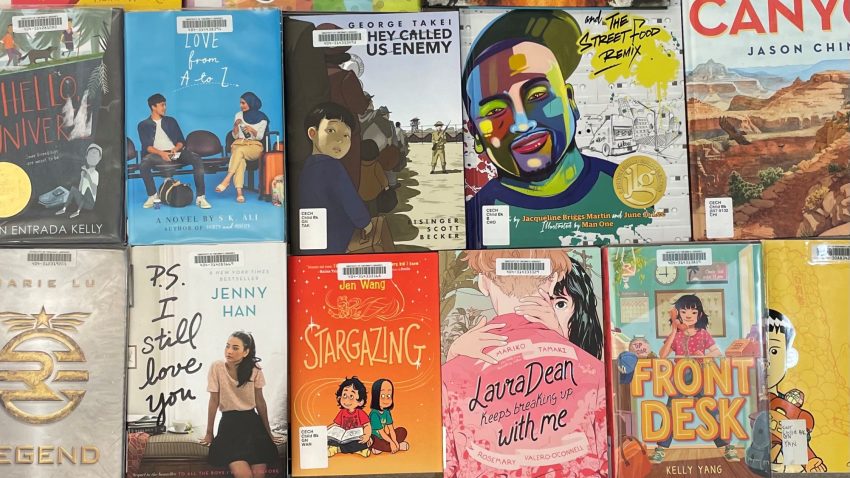
May is Asian American Pacific Islander (AAPI) Month. To celebrate, the CECH Library has created a list of books by AAPI authors.
Update: The use of the term #OwnVoices has been discontinued by We Need Diverse Books and the booklist below has been updated to reflect that. #OwnVoices has been used by many publishers/bookstores as a catch all for diverse authors and illustrators, making it a vague term that hides the diverse identities of the authors and the book characters from the narrative. Why We Need Diverse Books Is No Longer Using the Term #OwnVoices.
What makes a book Own Voices?
An Own Voices book is one that is written by an author that is part of an under-represented group that features characters that are also part of that group. For example, if an author is part of the LGBTQ+ community and they write about a character that is also part of the LGBTQ+ community then that book is an Own Voices book.
#OwnVoices was created by Corinne Duyvis, a young adult author and co-founder of Disability in Kidlit. She created the hashtag to share diverse children’s literature.
Why are Own Voices books important?
Own Voices books amplify diverse voices and provide necessary and important representation on our shelves. When book authors identify with the same group as their characters, they are more likely to have accurate and nuanced portrayals of that group than an author who is an outsider. Own Voices books are also less likely to perpetuate harmful stereotypes.
How can I find Own Voices books?
Many libraries, bookstores, and publishers develop Own Voices book lists. You can also search for #OwnVoices on social media to find reviews and book lists. CECH Library’s AAPI book list is also available via our Children’s and Young Adult Literature LibGuide.
Interested in learning more?
- What does own voices mean? And why it matters – Shuli de la Fuente-Lau
- Where to find diverse books
- We Need Diverse Books
- Unpacking Japanese Culture in Children’s Picture Books: Culturally Authentic Representation and Historical Events/Political Issues (Wee, Kura, & Kim, 2018)
- #OwnVoices: Why We Need Diverse Authors in Children’s Literature – Kayla Whaley
Post and book list by Haley Shaw, CECH Temporary Librarian
